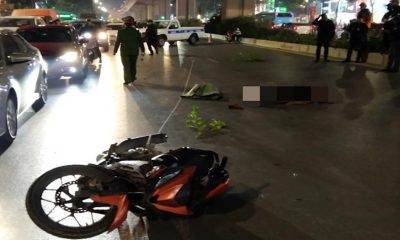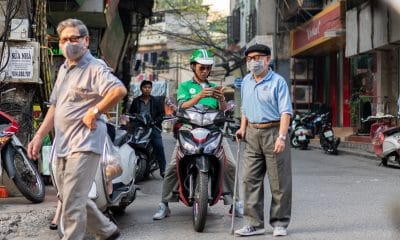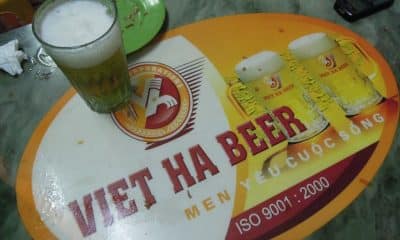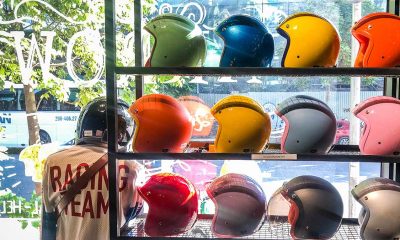Community
I beep therefore I am
Some philosophical thoughts on Hanoi’s relentless honking
Published
6 years agoon
By
Adam Carter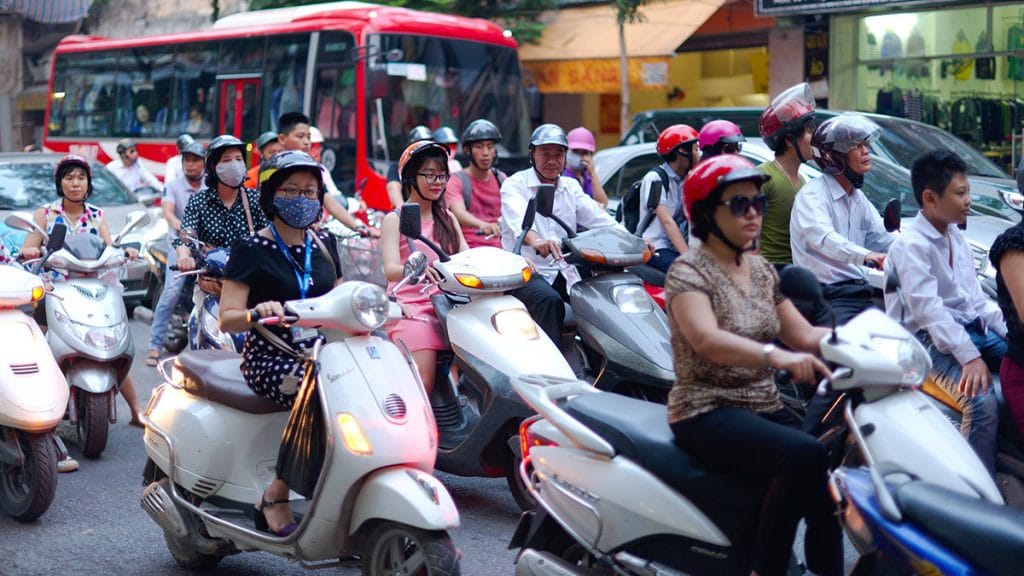
Anyone who has ever been to Hanoi knows the drill: you step out of the airport into the hot sticky Vietnamese air, and you are greeted with an all-too-familiar phalanx of taxi drivers eager to rip-off unsuspecting travelers. Whether foreigner or native, they are ready to swindle you; some might even applaud them for their “equal-opportunity price-gouging.”
Taking a tip from my “Veteran Traveler Book of Tricks,” it is best to just stroll past with an air of confidence, call it authoritarian even. Your body language needs to tell the supplicating drivers, “I have seen this all before.”
Boarding the cheaper alternative, a run-down minibus, I jump in the front seat, for there is nothing more exciting than sitting Shotgun and getting a bird’s-eye view of the madness. Whether it’s my umpteenth arrival to this dynamic city or a backpacker’s first foray into SE Asia, it is always exciting to watch the scenery of Hanoi unfold like a Friday night movie.
The honking is relentless, a completely unwarranted barrage. As any Hanoi resident will know, this is not an exception, but the rule.
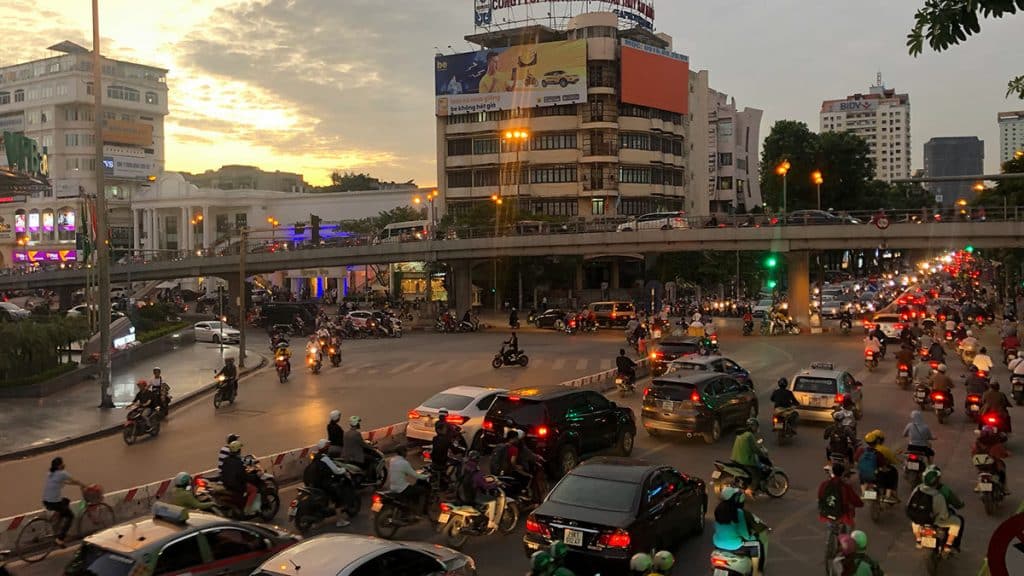
Only as we depart, one last local jumps in, of course squeezing next to me in front. As we hit the highway, I reach for my seat belt, which is apparently a luxury item here in Vietnam and nowhere to be seen. So as I sit unbuckled in the “death seat,” hurtling down a highway in a country with an understaffed medical system, hoping the trip will be safe, maybe even serene.
The two lanes of highway are pretty empty so the ride begins tranquilly. Soon we approach a man on a moto-scooter safely riding in the right lane. As we get closer, sticking to our left lane, our driver suddenly lets loose with a loud volley of horn-honks. Not a single beep, mind you, but nine long drawn-out bursts. The honking is relentless, a completely unwarranted barrage. As any Hanoi resident will know, this is not an exception, but the rule. As the driver’s relentless honking continues and my headache worsens, I shoot him incredulous and pleading looks, but his only reply is another staccato of beeps. Beep. Beep. Beep. When will it end?
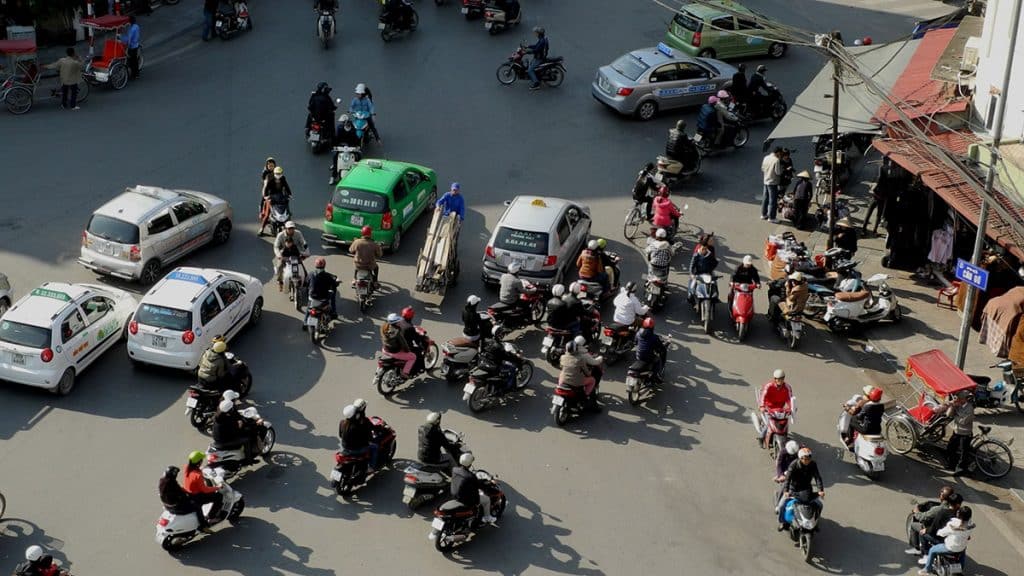
It is nearly impossible to simply cross the street. There are no WALK signs, no nicely-painted pedestrian crossings, no STOP signs and only a smattering of stoplights (which are often ignored like the plague).
Hanoi translates to “Bend in the River,” but I suspect it is actually Vietnamese for “Land of Many Scooters.” It was once a serene city of bicycles and pedestrians, but today, it is a noisy scooter paradise. It seems that capitalism is to blame. Fifteen years ago, only the rich bureaucrats could afford personal motor transport. But ever since the doi moi liberalization began in the 80s, thousands began amassing enough money to buy one of the prized Honda Dream scooters. In recent years, the mass migration of Vietnamese villagers moving into the cities in search of jobs, education and excitement has flooded Hanoi’s streets with motorbikes. Today, in this city of near 10 million, there are over 6 million motorbikes, as compared to just 1.5 million bicycles.
It is nearly impossible to simply cross the street. There are no WALK signs, no nicely-painted pedestrian crossings, no STOP signs and only a smattering of stoplights (which are often ignored like the plague). At first glance, it is complete anarchy. Faced with this scene of utter chaos, when it is time to take to two wheels, it is best to take the ‘complete-immersion approach’ (my mantra of sorts) and just jump in
and join the fray. “Bring it on,” I exclaim, as I pull out into the thick mass of wheels on my trusty, yet rusty bicycle. Sure, it is a little hectic, but coming from a biker who frequently grabs onto the back of passing trucks for a free lift, I have become quite comfortable. In fact, after a couple days biking through the beeping, I feel like I have penetrated the veneer of lawlessness to discover an underlying order.
There are a few explanations for this harmony, which is buried beneath a veil of traffic, exhaust and honking horns. As in India, one could argue that religion is a determining factor. Though the roads of India are perhaps the most chaotic (and certainly most dangerous) in the world, the relentless flow of bicycles, trucks, buses and cars comes to a sudden screeching halt the second a cow steps onto the
road. For a Hindu in India, hurting a sacred cow leads to bad karma and future lifetimes of suffering. It is kind of like Religion meets Road Rules. Here in Vietnam, there are no Hindus (or cows – only water buffalo who prefer the mud of the countryside).
Though, the Vietnamese have Buddhist leanings, there still exists a strong Confucian influence, left over from the several Chinese occupations throughout the last few millennia. This is not only apparent from the pagodas that still pepper the landscape, but also the belief system. Confucius was a Chinese scholar from 500 B.C. who stressed the need for social rules to maintain order in an ever-changing world. Respect the rules and respect your elders, he urged his followers. As can be expected, his conservative ideals were embraced by Chinese emperors eager to maintain the status quo.
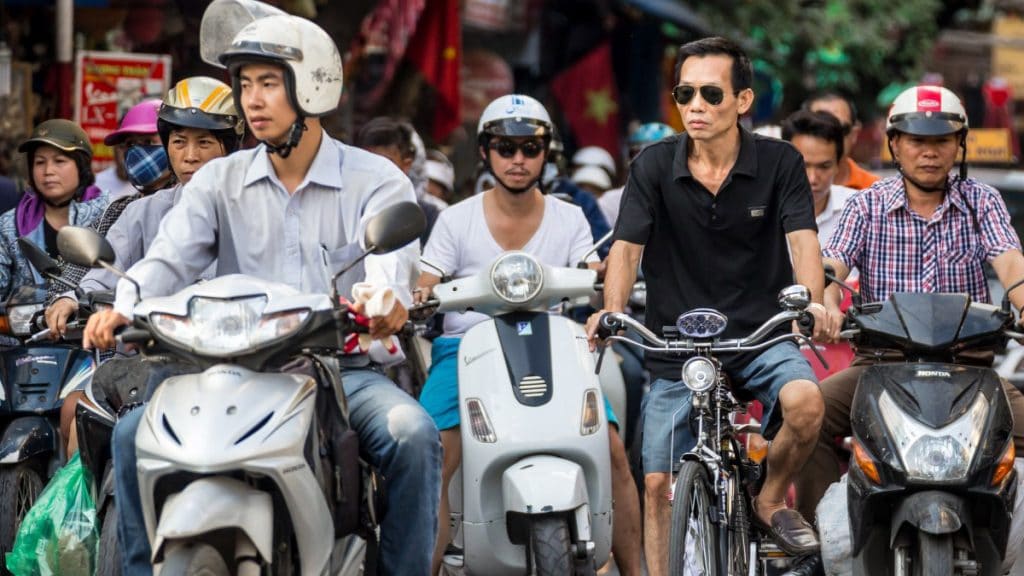
But after the initial shock passes, those who spend time in Hanoi come to understand the secret: just go with the flow.
It seems apparent that this ancient belief system still applies also to road rules. Riding past little old ladies selling flowers in front of ancient Confucian temples, you notice an unwritten code of ethics ruling the roads. Bicyclists stay safely to the right, leaving the left half of the lane for the faster scooters. But the scooters are not at the top of the totem pole; they too have to be ready to move aside for any passing car, which in turn pays respect to the larger truck or bus. It is fascinating to notice that even in a Communist country, this set of accepted rules is not government-inspired or enforced. The relative absence of police on the streets of Hanoi is testimony to the non-municipal roots of this code of traffic ethics. The old philosopher Thomas Hobbes believed that living in a world of chaos, a strong central government was necessary to whip people into shape and maintain order. Here in Vietnam, religion trumps government. Sorry Thomas.
Despite the accepted hierarchy of drivers, every intersection presents a challenge, as there are simply no stoplights or stop signs. At first, visitors are flabbergasted to watch these two steady flows of traffic converge and miraculously cross through each other with ease. But after the initial shock passes, those who spend time in Hanoi come to understand the secret: just go with the flow. Yes, it sounds like advice from a sappy new age book, but it is true. “Be one with the movement. Embrace it; own it. Like a reed floating through a river, surrender yourself to the flow.” Once we have reached that level of pedestrian enlightenment, we realize that only a novice actually comes to a stop while navigating traffic; true veterans do not slow down, but drift towards the crossing until, bang, an opening presents itself and then, boom, acceleration to safety. It may take a leap of faith, but if it works for almost 10 million Vietnamese; it works for me.
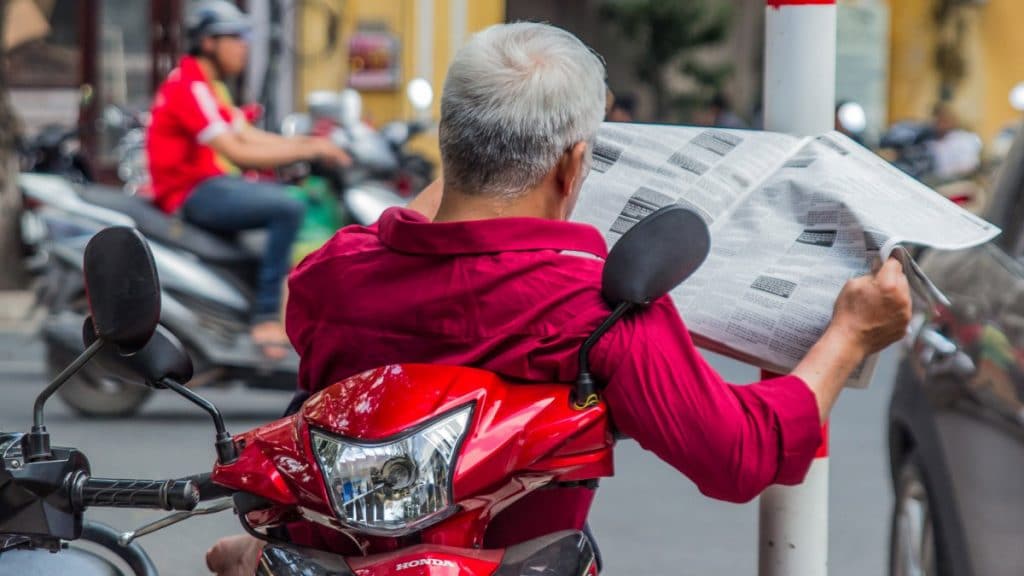
Despite this harmony, accidents and close calls are inevitable. But despite these brushes with death, it is rare see people raising their voice, flashing the finger or brandishing a fist. Here in Southeast Asia, expressing one’s anger or causing a scene is taboo. If these chaotic roads were full of aggressive American drivers rushing to get to work on time, the streets would be littered with victims of road rage.
Though it is culturally unacceptable to lose one’s cool in Vietnam, it is certainly not frowned upon to use one’s horn. In fact, many drivers beeping with such regularity that a casual observer would suspect it is the horn that is somehow powering the engine. Instead of Buddhist beliefs or Confucian tenets, it seems there is an air of existentialism alive on the streets of Hanoi: I beep, therefore I am.
